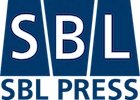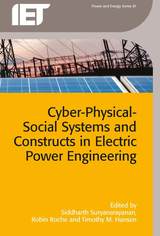
Explore the ancient context of prophecy and prophetic figures
This collection of essays examines the construction of prophecy in the Former and Latter Prophets, Chronicles, Daniel, and even in the Quran. This unique anthology recognizes that these texts do not simply describe the prophetic phenomena but rather depict prophets according to various conventional categories or their own individual points of view. Each essay analyzes how these writings portray prophecy or prophets to better understand how the respective authors structured their writings.
Features
- Introduction and twelve essays cover prophecy in the Hebrew Bible and the Quran
- Essays examine the relationship between the prophets and the cult, oral pronouncements and written collections, and divination, prophecy, and apocalypticism
- Additional essays raise questions about the prophetic persona and examine the prophets in hermeneutical perspective


Advanced language learning has only recently begun to capture the interest and attention of applied linguists and professionals in language education in the United States. In this breakthrough volume, experts in the field lay the groundwork for approaching the increasingly important role of advanced language learning in the larger context of multilingual societies, globalization, and security.
This volume presents both general and theoretical insights and language-specific considerations in college classrooms spanning a range of languages, from the commonly taught languages of English, French, and German to the less commonly taught Farsi, Korean, Norwegian, and Russian.
Among theoretical frameworks likely to be conducive to imagining and fostering instructed "advancedness" in a second language, this volume highlights a cognitive-semantic approach. The theoretical and data-based findings make clear that advanced learners in particular are characterized by the capacity to make situated choices from across the entire language system, from vocabulary and grammar to discourse features, which suggests the need for a text-oriented, meaning-driven approach to language teaching, learning, and research.
This volume also considers whether and how information structuring in second-language composition reveals first-language preferences of grammaticized concepts. Other topics include curricular and instructional approaches to narrativity, vocabulary expansion, the demands on instructed programs for efficiency and effectiveness in order to assure advanced levels, and learners' ability to function in professional contexts with their diverse oral and written genre requirements. Finally, the volume probes the role and nature of assessment as a measurement tool for both researching and assessing advanced language learning and as an essential component of improving programs.
READERS
Browse our collection.
PUBLISHERS
See BiblioVault's publisher services.
STUDENT SERVICES
Files for college accessibility offices.
UChicago Accessibility Resources
home | accessibility | search | about | contact us
BiblioVault ® 2001 - 2024
The University of Chicago Press









